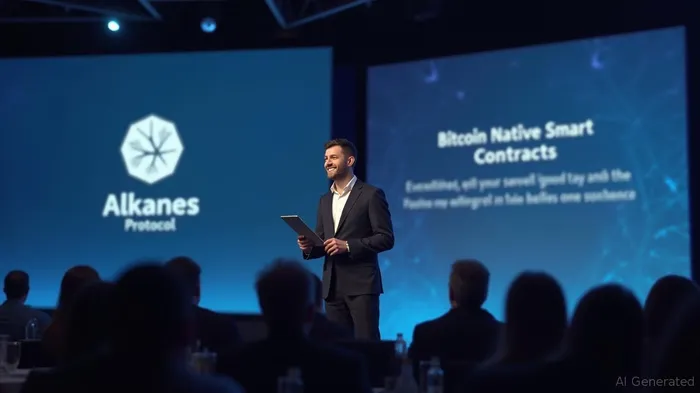Alkanes Protocol Launches Bitcoin Native Smart Contracts
Alkanes, a new metaprotocol on BitcoinBTC--, has emerged as a significant innovation in the realm of smart contracts and tokens. This protocol, developed by Oyl Corp, introduces trustless smart contract functionality directly on the Bitcoin base layer, eliminating the need for bridges or external execution layers. This advancement allows developers to build applications and launch tokens natively on Bitcoin, thereby expanding the original blockchain's capabilities.
The Alkanes protocol, founded by Alec Taggart, Cole Jorissen, and Ray Pulver, leverages WASM (WebAssembly) virtual machines to inscribe smart contracts directly into Bitcoin’s data layer. This approach enables a range of functionalities, including automated market makers (AMMs), staking contracts, free mints, and NFTMI-- swaps, all executed trustlessly on Bitcoin itself. Unlike previous protocols such as Runes and BRC-20, which are largely limited to issuing and transferring fungible tokens, Alkanes offers rich programmability and interoperability with other Bitcoin protocols.
The protocol introduces protostones, a new data primitive that can include multiple messages, enabling a variety of actions beyond simple issuance. Each asset on Alkanes is treated as both a token and a contract, using a factory model for efficient contract deployment. This model allows developers to pass new parameters to a template rather than redeploying contracts for each new asset, resulting in savings on blockspace and fees.
Alkanes also differentiates itself by treating all assets, whether fungible or non-fungible, as tokens. Non-fungible tokens (NFTs) on Alkanes are referred to as "Orbitals," a standard developed by the community. The first token deployed on Alkanes was Diesel, which mirrors Bitcoin’s emission schedule and is minted through Bitcoin blocks. This token is tied directly to Bitcoin’s halving cycle, showcasing the protocol's integration with the original blockchain.
The Alkanes team is actively building a native AMM for the protocol and establishing ecosystem partnerships with various components, including stablecoins, block explorers, wallet libraries, and DeFi protocols. These developments aim to demonstrate how developers can build full-stack applications using only Bitcoin primitives. Oyl Corp has also released its indexing engine, Metashrew, and all related infrastructure as open-source software, encouraging developer contributions and fostering a sustainable ecosystem.
The launch of the Alkanes protocol in early 2025 marked a significant milestone, with the deployment of the Diesel contract at block 880000. Since then, the project has grown organically through developer experimentation and open-source contributions, highlighting the community's enthusiasm and commitment to advancing Bitcoin's capabilities. The Alkanes protocol represents a transition from static token issuance to dynamic application deployment, positioning Bitcoin as a robust platform for fully expressive applications.
Alkanes, conceived by a developer known as "kungfuflex," introduces Bitcoin-native smart contracts, focusing on enhancing Bitcoin's programmability as of June 2025. This development signifies potential growth in Bitcoin-based DeFi applications, although its market adoption remains nascent. The Alkanes project promises to bring smart contract capabilities directly to Bitcoin's L1 layer. Drawing inspiration from Ordinals and Runes, it offers a unique Bitcoin-native solution without using wrapped tokens. Led by developer "kungfuflex," the project aims to enhance Bitcoin's utility by enabling direct DeFi infrastructure on Bitcoin, marking a new phase of decentralized finance on the platform.
The advent of Alkanes may bolster Bitcoin's role in DeFi, directly impacting Bitcoin's ecosystem and potentially increasing its on-chain activity. However, it currently lacks institutional backing and explicit endorsements from major crypto figures. While regulatory impacts are yet to emerge, the Alkanes protocol remains open-source, aligning with Bitcoin maximalist principles. Its expansion could eventually influence token economies if broader adoption occurs. Similar innovations like Ordinals and Runes previously increased Bitcoin activity. Alkanes extends this by facilitating Ethereum-class smart contracts. It's poised to influence BTC similarly as past projects did. Given historical trends, successful adoption may result in significant DeFi growth on Bitcoin, contingent on developer interest and infrastructure layering, potentially redefining Bitcoin's role in decentralized finance.

Quickly understand the history and background of various well-known coins
Latest Articles
Stay ahead of the market.
Get curated U.S. market news, insights and key dates delivered to your inbox.



Comments
No comments yet